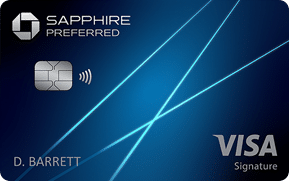0% INTRO APR
BALANCE TRANSFERS
When hunting for the perfect credit card, it’s crucial to acknowledge that while many cards excel in specific categories, none is without its flaws.
The key to pinpointing the best credit card for your wallet lies in a clear understanding of your spending habits and financial needs.
Whether it’s for travel rewards, cashback on daily expenses, or building credit, knowing your primary use is essential in making the right choice.
Best Credit Cards of 2024
Wells Fargo Active Cash® Card: No annual fee, optimal for general use with a stellar 5/5 editor’s rating, this card tops the list for its versatility and value.
Discover it® Secured Credit Card: With a $0 annual fee and a perfect 5/5 rating, it’s the prime choice for individuals rebuilding credit, offering a secure way to enhance financial health.
Chase Sapphire Preferred® Card: A travel enthusiast’s best friend with a $95 annual fee, it garners a 5/5 rating for its exceptional travel rewards and benefits.
Chase Freedom Unlimited®: Ideal for those seeking low APR and high rewards without any annual fee, this card shines with a full 5/5 editor’s rating.
Wells Fargo Reflect® Card: Boasting a 4.8/5 rating, this card is the go-to for a 0% intro APR, offering a $0 annual fee and long-term savings on interest.
Capital One SavorOne Cash Rewards Credit Card: With a $0 annual fee and a 4.8/5 rating, it’s the best pick for maximizing cash back on dining and entertainment.
Capital One Spark Cash Plus: A business powerhouse with a $150 annual fee and a 4.8/5 rating, it’s designed to reward business expenses with cash back.
Citi® Double Cash Card – 18 month BT offer: This card, with no annual fee and a 5/5 rating, stands out for fair credit holders seeking balance transfer options.
Chase Freedom Rise℠ Credit Card: A solid choice for those with no credit history, it has a $0 annual fee and is tailored to help build credit from the ground up.
Blue Cash Preferred® Card from American Express: With a $0 intro fee for the first year, then $95, this card’s 4.7/5 rating makes it the best for gas and grocery rewards.
Capital One SavorOne Student Cash Rewards Credit Card: No annual fee and a 4.7/5 rating, this card is designed for students looking to earn rewards while building credit.
Best Credit Card Picks from Credit Card Company
American Express: The Premier Choice for Rewards American Express leads with the Blue Cash Preferred® Card, offering an impressive initial bonus and ongoing rewards in key spending categories.
For those with a penchant for travel and higher spending, the American Express® Gold Card emerges as a favored option.
Prospective cardholders should note that a good credit score is typically necessary for Amex cards.
Bank of America: Premium Rewards for Personal Use The standout from Bank of America is the Bank of America® Premium Rewards® credit card.
It boasts the best two-year net rewards value, factoring in annual fees, making it an excellent choice for personal use with lucrative returns.
Capital One: Simplicity Meets Value Capital One’s Quicksilver Cash Rewards Credit Card is the quintessential choice for those seeking straightforward rewards.
With no annual fee and an introductory 0% APR, the Quicksilver card is a prime pick for cost-effective rewards earning.
Chase: Unlimited Rewards and Travel Perks Chase Freedom Unlimited® is Chase’s all-star, offering substantial rewards, no annual fee, and an introductory 0% APR.
For the travel-savvy, the Chase Sapphire Preferred® Card is the go-to for its travel rewards and benefits.
Citi: Everyday Earnings and Debt Management Citi® Double Cash Card – 18 month BT offer stands out at Citi, providing excellent rewards on everyday purchases and a pathway to debt relief with its balance transfer offer.
Discover: Generous Cash Back and First-Year Bonus Discover shines with the Discover it® Cash Back card, featuring a high rewards rate and a unique first-year bonus where Discover matches all cash back earned, doubling the rewards after the first year.
Wells Fargo: Flat-Rate Rewards and No Annual Fee The Wells Fargo Active Cash® Card is the top choice for consistent rewards across all purchases, complemented by a solid initial bonus and no annual fee, making it a strong contender for everyday use.
U.S. Bank: Customizable Cash Back U.S. Bank’s Cash+® Visa Signature® Card offers a $0 annual fee and a customizable rewards program, with an enticing initial bonus and competitive cash back rates on everyday purchases.
Visa: Versatile Rewards with Chase Freedom Unlimited® The best Visa card is the Chase Freedom Unlimited®, with its $0 annual fee and versatile cash back program, including an introductory 0% APR period, making it a comprehensive rewards card.
Mastercard: Rewarding Travel and Bonus Points The Citi Premier® Card is the top Mastercard, offering a substantial initial points bonus and ongoing rewards that cater to frequent travelers, despite its $95 annual fee.
Best Credit Card by Credit Score
What is a credit card?
A credit card is more than just a plastic card in your wallet it’s a dynamic financial tool that offers the flexibility to purchase now and pay later.
Unlike a debit card, which deducts money directly from your bank account, a credit card allows you to borrow funds up to a certain limit and build your credit history with responsible use.
This is crucial because your credit score is unaffected by other payment methods like debit cards or cash.
Additionally, credit cards come with a variety of benefits that can save you money, making the selection of the right type an important financial decision.
Diverse Credit Card Categories: Finding Your Match
Credit cards come in various forms, each with unique features and benefits:
- Standard Unsecured Credit Cards: These do not require a security deposit and are the most common type of credit cards.
- Secured Credit Cards: These require a refundable security deposit, and your credit limit typically matches the deposit amount.
- Credit Cards for Students: Tailored for those in academia, these cards consider the future earning potential and often offer favorable terms.
- Small Business Credit Cards: Designed to aid small business owners, these cards come with rewards and features that can save time and money, though personal liability for the balance often applies.
- Store Credit Cards: Limited to purchases with specific retailers, these cards can offer in-store discounts and rewards.
- Charge Cards: These require full payment of the balance each month but often reward you with competitive perks.
Many credit cards also offer rewards for every dollar spent and interest-free periods, enhancing their value proposition.
The Mechanics of Best Credit Cards: Spend Now, Pay Later
When you transact with a credit card, you’re essentially borrowing from the issuer to cover your purchase. Repaying the full amount by the monthly due date means you won’t incur interest. However, if you only make partial payments, interest will accrue on the remaining balance.
Maintaining at least the minimum payment by the due date is crucial for a positive credit report and score.
Essential Insights on Credit Card Usage
Eligibility for a credit card requires a minimum age of 18 and a steady income.
Approval hinges on your borrowing history, income, and current debt levels.
Credit cards facilitate various transactions, including purchases, balance transfers, and cash advances, and they report to credit bureaus monthly, aiding in credit building.
By choosing the right card and understanding the payment schedule, you can sidestep fees and interest, potentially saving hundreds annually.
Demystifying Credit Card Interest
Interest accrues daily on unpaid balances and new purchases if you don’t pay the full statement balance by the due date.
This interest compounds, meaning it’s added to the balance daily. To avoid interest, pay your bill in full each month within the grace period.
Setting up automatic payments for the full amount due is an effective strategy to prevent interest charges.
Calculating Credit Card Interest Simplified
To understand the impact of interest on your finances, use a credit card interest calculator.
It can show the cost of paying off a balance at a given interest rate and the potential savings from switching cards.
Your account statements will also break down the interest owed and the implications of only making minimum payments.
In conclusion, selecting the right credit card is a blend of understanding your financial habits, recognizing the card types available, and using the card’s features to your advantage.
With this comprehensive guide, you’re now equipped to make an informed decision that aligns with your financial goals and lifestyle.
Unlocking the Secrets to Acquiring Your Ideal Credit Card
Navigating the world of credit cards can seem daunting, but with the right approach, you can unlock the perfect credit card for your wallet.
This comprehensive guide will illuminate the path to not only getting a credit card but making the most of it.
Step-by-Step: How to Apply for a Credit Card & Get Approved
Embarking on the journey to credit card ownership begins with a few preparatory steps to ensure a smooth application process and a favorable outcome.
- Get Pre-Approval Insight: Secure a pre-approval or pre-qualification to gauge your chances of approval.
- Credit Score Check: Knowing your credit score is crucial as it directs you to the cards within your reach.
- Compare credit card offers: Sift through credit card offers to pinpoint the one that promises the most value, whether it’s through rewards or a 0% intro APR.
- Selecting the Perfect Match: Assess the potential savings each card offers to identify the one that aligns with your financial goals.
- Application Process: Fill out the online application with basic personal details, including your Social Security Number (SSN) or Individual Taxpayer Identification Number (ITIN).
- Await the Verdict: Submit your application and typically receive a decision within moments.
- Card Delivery: Your new credit card should arrive within 7-10 business days.
For a deeper dive into the application process, continue reading about how to get a credit card.
Choosing Your Best Credit Card Wisely
To find the credit card that fits like a glove, consider leveraging free online tools like Conta Ideal, which analyzes your credit history and spending habits to suggest cards with high approval odds and savings potential.
Alternatively, you can manually compare offers, keeping in mind these key strategies:
- Rewards Maximization: If you’re a full-payer each month, focus on cards that offer the best rewards minus any annual fees.
- Intro APR Hunt: For those carrying a balance, seek out the longest 0% intro APR period to minimize interest expenses.
- Balance Transfer Tactics: Use a balance transfer calculator to find the most cost-effective card for existing debt.
- Fee Avoidance: With limited or poor credit, aim for cards with no annual fees to aid in credit building without unnecessary costs.
The Optimal Number of Credit Cards
When it comes to the number of credit cards one should have, the golden rule is to apply for them one at a time to protect your credit score and enhance approval chances.
As your credit improves, consider the “Island Approach,” segregating your transactions across different cards to maximize rewards and savings.
Mastering Credit Card Use
To wield a credit card like a pro, make it your go-to for everyday expenses and automate full balance payments each month.
This strategy ensures you reap benefits like rewards and fraud protection without incurring interest or damaging your credit score.
Credit Card Usage Tips for the Prudent User
- Credit Utilization: Keep your balance below 30% of your limit to maintain a healthy credit score.
- Timely Payments: Never miss a due date; consider setting up automatic payments to ensure minimum payments are always made on time.
- Statement Scrutiny: Regularly review your statements to catch any errors and keep tabs on your spending.
- Reward Redemption: Make the most of your rewards by redeeming them frequently to prevent expiration.
- Account Longevity: Maintain old accounts with no annual fees to bolster your credit history.
Maximizing Credit Card Rewards
To turn rewards into substantial savings, follow these guidelines:
- Strategic Card Selection: Choose cards with significant sign-up bonuses and high reward rates in your frequent spending categories.
- Diverse Credit Portfolio: Utilize multiple cards to optimize rewards across different spending areas.
- Smart Reward Redemption: Redeem points or miles for travel to get the most value, as cashback redemptions can diminish their worth.
- Full Monthly Payments: Avoid interest by paying off your balance in full, especially if your card doesn’t offer a 0% intro APR.
Common Credit Card Pitfalls to Avoid
Finally, to maintain a fruitful relationship with your credit cards, steer clear of these missteps:
- Inappropriate Card Choice: Select a card that saves you the most money annually, considering rewards and fees.
- Late Payments: Always pay at least the minimum by the due date to protect your credit score.
- Interest Accrual: Avoid carrying a balance on cards with high regular APRs; instead, use a 0% intro APR card for large purchases.
- Missed Opportunities: Keep an eye out for limited-time deals that can offer significant savings.
- Neglecting Security: Regularly review statements and update passwords to safeguard against unauthorized transactions.
By following these expert tips and strategies, you’re not just getting a credit card; you’re unlocking a financial tool that, when used responsibly, can enhance your fiscal health and offer rewarding benefits.


